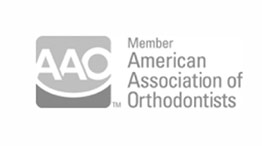Treatments
TMJ Treatment
What is TMJ disorder?
Temporomandibular disorder is a condition where the mouth is painful and uncomfortable while being opened or closed because it affects the joints around the jaw.
There are several types of temporal mandibular disorders, which affect the joints of the jaw, the nerves inside the face, and the muscles surrounding the jaw. Various movements of the jaw, such as twisting, opening or closing, or side-movements, can trigger TMJ pain.
What causes TMJ pain?
Over time, the muscles and ligaments that hold the TMJ can get damaged or stretched, causing the lower jaw to drift out of alignment. In some cases, the jaw can also slide too far out of alignment at once after a traumatic event and negatively impact chewing and speaking.
You should not let a condition go undiagnosed, regardless of whether it produces a small clicking sound or causes excruciating pain.
What are the symptoms of TMJ disorder?
Typical symptoms of temporomandibular disorder include:
- Headaches and neck aches on a regular basis
- An earache and pain in the surrounding area
- Jaw pain that is more prevalent in the mornings or late afternoons
- Having pain in the jaw when yawning, biting, or chewing
- Opening and closing the mouth produces a clicking sound
- Muscle soreness and tenderness in the jaw
- Teeth that are sensitive
- An inability to open or close the mouth easily
What are the treatment options for TMJ disorder?
Each patient’s treatment plan differs based on their health, medical history, tolerance of specific medications, and the extent of their disorder.
- Stress management – Most patients will benefit from stress management techniques which will reduce jaw clenching and teeth grinding. For patients with stress-induced TMJ, counseling and relaxation exercises can be helpful. Often, the simplest solution is to make small lifestyle changes.
- Pain medication – Pain medications or muscle relaxants may temporarily relieve pain for a minority of patients, but they don’t treat the underlying problem.
- Non-invasive treatment – In non-invasive treatment, the teeth are protected from grinding with a mouth guard or splint (often worn at night).
- Orthodontic treatment – Orthodontics is one common treatment option for patients with TMJ disorders. When the cause of the pain is an ill-fitting bite, orthodontic treatment can help create a more balanced bite and ensure the jaw works properly. By ensuring a proper bite, misaligned teeth will not be compensated for and the jaw will function optimally.
- Surgical procedures – There are, however, some patients who will only find relief through surgery.









